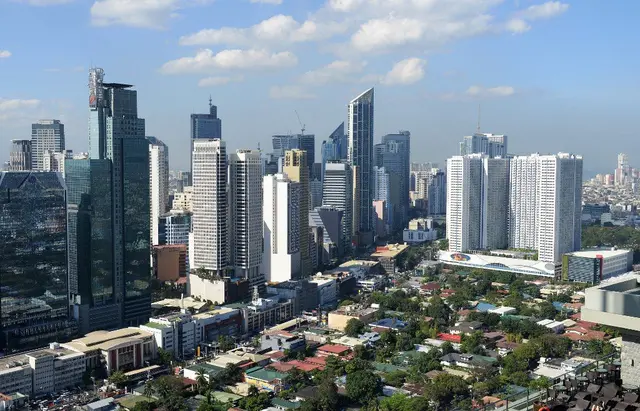By APD writer Melo M. Acuña
**MANILA, Oct. 10 (APD) – **With the continuing global uncertainties, the Philippine economy remained strong and expected to grow 5.8 percent this year and 6.0 percent in 2020 and 2021 according to the Philippines Economic Update released by the World Bank today.
Weakening global economy, rising protectionism, the United States – China trade spat and the slowdown in public investments in the Philippines for the first semester of the year tempered the country’s growth prospects.
However, strong private consumption due to lower inflation, higher employment rates, strong remittances and rising wages and a recovery in public investment spending will keep the economy afloat. The services sector will drive growth fueled by the continuing expansion of financial services and tourism.
“Given the global environment, resuming the past pace of expansion in infrastructure and human capital spending will be the key for the Philippines to regain higher growth momentum while continuing to lay the foundation for greater inclusion,” said Mara K. Warwick, World Bank Country Director for Brunei, Malaysia, Thailand and the Philippines. She added the timely passage of the 2020 budget and decisive action on the country’s tax reform program will remove uncertainties and help the private sector make timely decisions and boost job creation.
The report projects that Philippines will maintain progress in reducing poverty despite the temporary slowdown in economic growth in the first half of 2019. It was learned more workers are finding gainful work outside agriculture, real wages are rising, and inflation rates are stabilizing. The continuing implementation of social programs including Pantawid Pamilya or 4Ps, contributes remarkable to poverty reduction.
With the World Bank’s US$3.2 dollar-a-day poverty rate as backdrop, the poverty incidence is estimated to have declined form 26.0 percent in 2015 to 20.8 percent in 2019, a result of growth of incomes among poor households.
The poverty rate is further expected to dip to 19.7 percent in 2020 and 18.7 percent in 2021.
“In the medium term, accelerating implementation of high-impact infrastructure projects and the recently approved critical reforms like the East of Doing Business law and liberalization of the rice trade will help the country sustain inclusive growth that generates high-paying jobs and reduces poverty,” said World Bank Senior Economist Rong Qian.
She added that the passage of investment-friendly reforms including the amendments to the Public Service Act to allow foreign ownership in key sectors including telecommunication and transportation services, and the Retail Trade Liberalization Act will allow greater competition in the retail trade sector, will attract more foreign direct investment and boost local productivity.
The same report said promoting competition to general quality jobs will enhance the impact of growth on poverty reduction in the Philippines over the long term. Critical sectors of the country are still dominated by a few playe3rs and the report recommends reforms to enhance competition in Philippine markets including the streamlining of burdensome administrative procedures for businesses to make it easier to start a business, generating more competition in markets, eliminating restrictions on foreign as well as domestic investors to help level the playfield and ensure that state-owned enterprises compete in fair terms with private business, to promote more efficient use of public funds.
(ASIA PACIFIC DAILY)
 简体中文
简体中文

